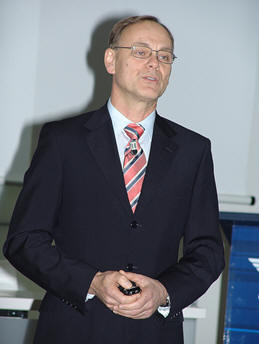|
|||||||||||||||||
|
|
|
|||
|
Harmonization And
Global Standards Key To A Safer Aviation Industry By Daniel Baxter |
||||
 |
April 30, 2012 - The International Air Transport
Association’s (IATA) 2012 Operations Committee (OPC)
agreed to four main priorities to guide IATA’s safety
initiatives over the next 12 months. These are: Pilot and Engineer Training: Accommodating the growth in demand for air connectivity with trained pilots and engineers is a priority. IATA will facilitate this with the IATA Quality and Training Initiative (ITQI), which moves into its implementation stage.
The focus will be on working with the International
Civil Aviation Organization (ICAO), the International
Federation of Airline Pilots' Associations (IFALPA) and
regulators to shift to a competency-based approach to
training for pilots and engineers.
·
ITQI takes a comprehensive approach to training by
addressing aptitude testing, multi-crew pilot licensing,
evidence-based training and instructor qualification. · Training modernization is based on ensuing the core competencies of pilots and mechanics as defined in the first phase of ITQI (2007-2011). Alongside training modernization, ITQI will also promote mutual recognition of standards for pilot and engineer licensing and certification of flight simulators. |
|||
|
Enhanced IOSA: The Enhanced IATA Operational Safety Audit (IOSA) program will include measures to ensure continuous conformity with IOSA standards and recommended practices (ISARPS) with quality control processes and self-auditing in between IOSA’s two-year audit cycle.
A timeline
for the implementation of Enhanced IOSA will be proposed for
endorsement at the next OPC meeting in October. Since the end of
2008, IOSA has been a condition of IATA membership and has been
supported by the US Federal Aviation Administration (FAA), the
European Aviation Safety Agency (EASA) and ICAO along with other
key regulators around the globe.
Ground
Operations: A
dedicated IATA ground operations team was created to support the
IATA Ground Handling Committee as it drives safety and
efficiency improvements. The Committee’s agenda includes (1) the
further development and implementation of the just released IATA
Ground Handling Manual (IGOM), (2) developing a standard set of
ground handling instructions, and (3) the further development of
the IATA Safety Audit for Ground Operations (ISAGO). These are
cornerstones of the industry’s effort to improve ground safety
while reducing the $4 billion cost of ground damage. |
||||


